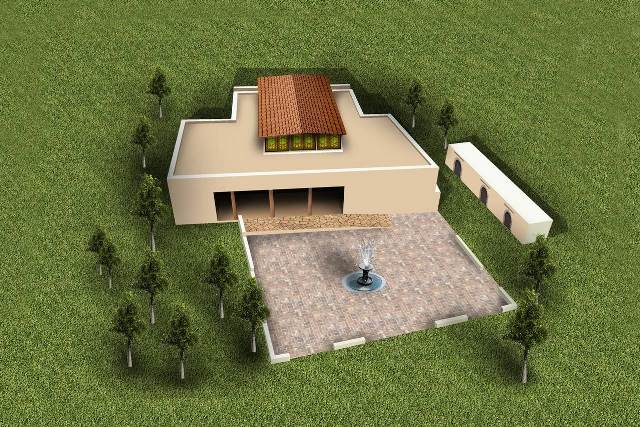Greece Moves toward Approving First Official Mosque
Greece’s highest administrative court, the Council of State, this month dismissed objections from some local residents to the planning application to build a mosque, clearing the way for the issuance of a building permit, The Wall Street Journal reported.
The development now goes to the environment ministry and interior ministry for procedural approvals, a process that could take weeks or over a year as it winds through Greece’s bureaucracy.
A spike in refugees fleeing the Middle East has swelled the capital's Muslim population, already on the rise over the past decade from immigration from Pakistan, Afghanistan and other Asian countries.
The political mood has also shifted under the left-wing government of Prime Minister Alexis Tsipras,only a few years after the rise of the anti-immigrant fascist movement Golden Dawn. The government supports the mosque and plans to cover the €1 million ($1.1 million) construction costs.
"The refugee crisis has increased the pressure for the mosque to be built,” said John Dimakis, political analyst at Athens-based communications consultancy STR.
The planned building, on state-owned land in the western Athens neighborhood of Elaionas, is an inconspicuous low-rise complex with no minaret and a prayer hall for up for 350 people.

Athens is one of the few capital cities in the European Union that has no purpose-built mosque, despite being home to an estimated 200,000 Muslims, according to a senior government official.
Until now, Muslims have worshiped in unofficial locations such as private homes, basements, and abandoned warehouses. Greek government officials estimate there are 70 to 80 unauthorized mosques in Athens and the surrounding region. Four such sites have been given a license, but none is a purpose-built mosque. All places of religious worship need a permit in Greece.
Local Muslim residents welcomed the court ruling in favor of the mosque, but some question whether the building will be big enough, given the size and diversity of Athens’ Muslim population. The Greek government intends the mosque to serve both Shia and Sunni Muslims, according to a senior government official.
"It is small and doesn’t really cover all of our needs,” said Taher Alizadeh, a spokesman for the Shia Muslim Community of Greece. Up to 1,500 members of his community gather for prayers at religious festivals, he said.
Longstanding popular and political resistance to building a mosque in Athens is due partly to Greece’s history of tensions with its neighbor and former colonial ruler Turkey, according to Athena Skoulariki, a sociologist at the University of Crete.
"Since the Greek war of independence against the Ottoman Empire, Greek national identity was built in opposition to Islam,” she said.
For years, many people in this overwhelmingly Greek-Orthodox Christian society argued a mosque would dilute Greek culture and viewed it as a political concession to Turkey. The two still have lingering territorial disputes.
As well, Greece until a decade ago had few Muslim residents outside its northeast region, near Turkey.
"There was always a feeling that a mosque wasn’t really necessary” in Athens, said Anna Diamantopoulou, a former Greek minister for education, whose ministry also handled religious affairs.
The incoming wave of Muslim immigrants over the past decade increased the need for an official place of worship, but also provoked a backlash among some groups. "When the population of Muslims grew, then the xenophobia started,” Ms. Diamantopoulou said.
The planned mosque is strenuously opposed by the extremist Golden Dawn party, whose popularity surged in the wake of Greece’s debt crisis and economic depression. Its supporters became notorious for violence against Asian immigrant.
But the election in 2015 of the left-wing Syriza party led by Mr. Tsipras and the spike in refugees fleeing the war in Syria has a led to more open attitude toward the need for a place of worship.
The Greek government has been welcoming of refugees reaching its shores after crossing the Aegean Sea from Turkey and is taking some steps aimed at their integration. Some 57,000 refugees are currently in the country, many of whom government officials now expect will remain in the country for the long term. Recent changes to immigration laws have also been introduced, allowing refugees to work in the country.
The Greek Orthodox Church, some of whose senior figures have in the past objected strongly to building a mosque in Athens, is officially in favor. The Church of Greece believes that Muslims have a constitutional right to have their own place of worship, spokesman Haris Konidaris said.
It also, however, has "strong” reservations about the mosque, due to concerns over who will control the temple and possible outbreaks of violence between the Shia and Sunni Muslims, Mr. Konidaris said.
Despite the political and judicial support for the mosque, Greece’s glacial bureaucracy could still slow down its construction.
"The first bulldozer could get to workin six months’time orin two yearsfrom now, depending on how the bureaucracy unfolds,” said a senior Greek government official. "This, I fear, could the biggest obstacle to the project.”




